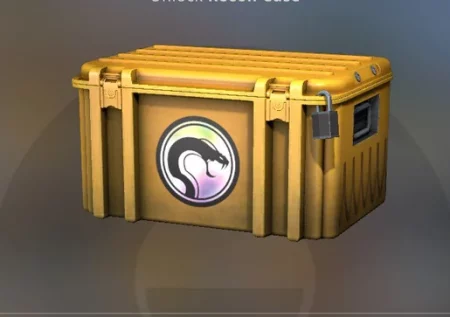Case opening in CS2 (CS:GO), a popular online first-person shooter game developed by Valve Corporation, is a form of in-game microtransaction where players can purchase or acquire keys to unlock cases.
These cases contain random items, usually cosmetic skins for weapons, which can alter the appearance but not the functionality of weapons in the game. These skins vary in rarity and design, influencing their market value and desirability among players
How Case Opening Works
- Acquisition of Cases: Players receive cases randomly at the end of matches as part of the game’s reward system. Cases can also be bought from other players through the Steam Community Market.
- Purchasing Keys: To open a case, a player must have a corresponding key, which can be purchased from the in-game store or the Steam Community Market. Each type of case requires a specific key.
- Opening the Case: Once a player has both a case and the corresponding key, they can open the case through the game’s interface. When a case is opened, the player is presented with a spinning wheel animation showcasing various skins, with the final skin stopping on being the item they receive.
- Item Rarity and Value: Items within cases are categorized into different rarity levels, indicated by colors. Common skins are grey, while the rarest skins, known as “knives” or “gloves,” are gold. The rarity of the item typically determines its market value.
- Trading and Selling: Players can trade the items they receive with other players or sell them on the Steam Community Market. Prices vary based on the item’s rarity, demand, and condition.
- Gambling Aspect: Case opening is often compared to gambling, as the value of the items inside is unknown until the case is opened, and there is a chance to receive an item worth less than the key used to open the case.
Third-Party Platforms for CS2 (CS:GO) Skins & Cases
In addition to the official Valve marketplace, numerous third-party platforms cater to the buying, selling, and trading of CS2 (CS:GO) skins and cases. These platforms have grown in popularity due to their varied features, often providing users with alternatives that might not be available on the official Steam Community Market. Here’s how these platforms work and their impact on the CS2 (CS:GO) economy:
- Functionality: Third-party platforms offer various services including the buying, selling, and trading of CS2 (CS:GO) skins and cases. Unlike the Steam Market, some of these platforms allow users to cash out their earnings, converting virtual items into real-world currency.
- Case Opening: Beyond mere trading, several third-party sites specialize in case openings. These sites often offer their own unique cases, different from those found in the official CS2 (CS:GO) game, with varying odds and item pools. Players can deposit money, open cases, and potentially win rare skins, often at a lower cost than opening official cases.
- Security and Legality: While many third-party sites operate legitimately, offering secure transactions and adhering to local laws, there are risks associated with their use. Issues such as fraud, underage gambling, and lack of regulation have been associated with some platforms. Users must research and use reputable sites, ensuring they comply with their country’s legal standards.
- Market Impact: Third-party platforms can significantly impact the CS2 (CS:GO) skin market. They often offer a wider range of prices and can influence the market value of certain skins. The accessibility and additional features provided by these platforms can lead to a more active trading environment.
- Community and Professional Use: Many professional gamers and community members use third-party platforms to trade and acquire skins. These platforms can also sponsor eSports teams and events, contributing to their legitimacy and integration within the CS2 (CS:GO) community.
- Regulation and Valve’s Stance: Valve has issued statements and taken actions against certain third-party platforms, especially those involved in gambling or illegal activities. While trading and selling platforms are generally tolerated, Valve discourages the use of platforms associated with gambling.
When using third-party platforms, users need to be aware of the risks, ensure the platform’s credibility, and comply with all legal requirements. Always proceed with caution and conduct thorough research before engaging in any transactions outside of the official Steam Community Market.

